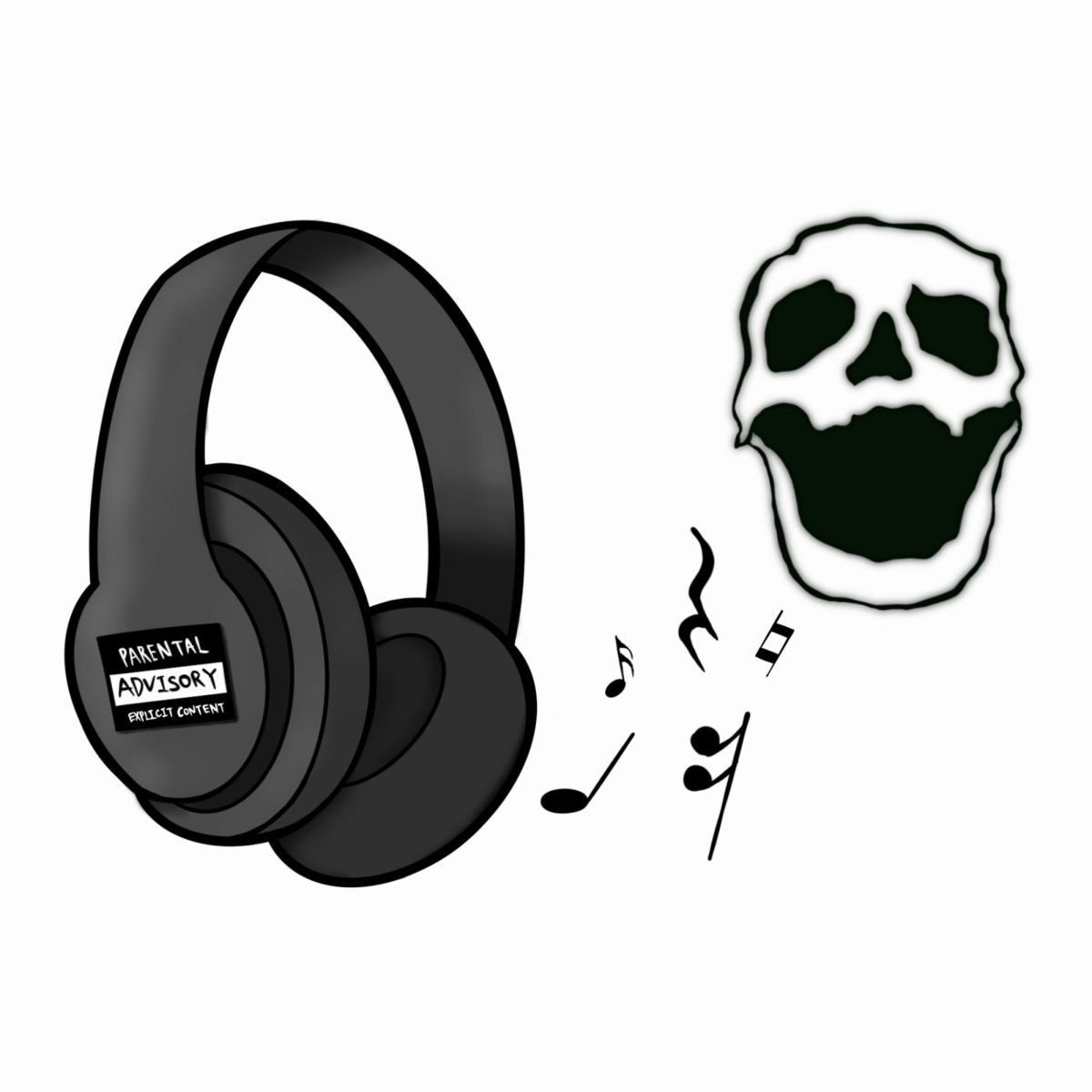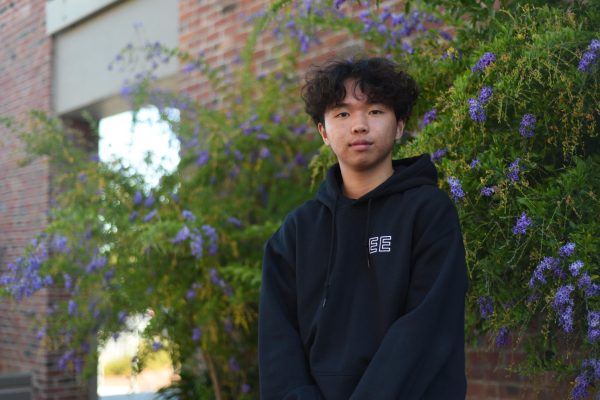“I wake up in the morning, I got murder on my mind.”
Written by rapper Jamell Demons, better known as YNW Melly, these disturbing lyrics characterize his hit single “Murder on My Mind” released in March 2017. The song, which peaked at number one on the US Apple Music chart, describes YNW Melly murdering one of his close friends. Although the song is not about a real homicide, the Florida rapper is currently being charged with capital murder for the death of his best friends Christopher Thomas Jr. and Anthony Williams.
In “Murder on My Mind”, YNW Melly tried to express his issues with crime, family and love, yet his delivery comes in the form of incredibly explicit lyrics, which begs the question: how should artists balance creative control without overstepping ethical boundaries?
Sophomore Harshita Ravi believes that while many artists are just using their songs to express themselves, their lyrics cross the fine line between artistic expression and glorifying violence.
“In most of the rap songs that I know right now, the [artists] are using violent themes just to be violent, which is really bad,” said Ravi. “Their audiences are constantly exposed to things like murders and drugs, and over time, they [might] think that these things are cool.”
In the week of Aug. 28, more than half of the songs on Apple Music’s top ten hip hop and rap songs contain multiple references to violence and substance abuse, such as “Meltdown” by rappers Travis Scott and Drake. Ravi asserts that there must be some amount of restriction on the overwhelming amount of violent rap songs present today, especially since many of the listeners are high schoolers.
“I think that [certain songs] should be censored,” Ravi said. “Sometimes, violence can be a very sensitive topic for people, and these rap songs are just filled with them. Even just having more warnings for their audiences could be better.”
The current form of warning comes in the form of a parental warning advisory sticker on album covers to notify parents of children about the explicit content contained in an album. This was introduced in 1985 after the Parents Music Resource Center led a campaign against violent music. Nonetheless, Ravi believes that these stickers don’t do much in an era of online streaming since children can access songs without having a physical record or CD.
However, sophomore Agasthya Kothuri believes that rap songs with violent imagery can do a great job of spreading awareness. One of his favorite songs, “Like Toy Soldiers” by rapper Marshall Mathers, better known as Eminem, characterizes this greatly.
“‘Like Toy Soldiers’ is a song Eminem made about how people shouldn’t die just because of the songs that rap artists create,” Kothuri said. “He’s stating the problem [with the rap community] and telling people to fix it, saying that he would not want any of his fans or the people that listen to his music to die because of what someone else said or what he said in a song.”
Eminem released “Like Toy Soldiers” in 2003 as a way for him to express his resentment towards the violence in the rap industry. Throughout the song, Eminem addresses several disputes between rappers, including his own issues with rapper Jefferey Atkins, also known as Ja Rule. Although the lyrics mention countless violent topics, Kothuri believes that the real goal of the song is to warn his fans and peers about how violence isn’t a glamorous thing.
“Once you like a song you should research it,” Kothuri said. “You should understand why the artist is saying that, the background of the artist, where they’re coming from and stuff like that. You shouldn’t take it at face value because you miss what the artist is truly talking about.”
Kothuri believes that just like other forms of media, music also has deeper meanings beneath the surface and contains valuable themes and lessons. He feels that music is often misunderstood because people don’t care enough to think about what the artist is actually saying. Social studies teacher Scott Victorine shares a similar sentiment.
“There are many songs I’ve heard over the years where people might perceive it as violent, but the songwriter isn’t really trying to promote [that],” Victorine said. “It may be something the [artist] was struggling with or they were going through. They’re expressing how they feel in a way that might come across as violent but really, it’s a form of expression, and it’s not promoting a message of violence.”
However, Victorine recognizes that there must be boundaries that an artist cannot overstep. Just like how freedom of speech doesn’t grant people the right to spew hate and hostility, freedom of expression doesn’t mean artists can put whatever they want into their songs.
“With great power comes great responsibility,” Victorine said. “[Artists] do have an obligation in some sense [to their] audience about who’s hearing the music and how it’s perceived. I would hate to put any kind of creative restrictions on artists, but I think there must be some kind of boundary.”
Ultimately, YNW Melly does have the artistic freedom to express himself in violent ways, but Kothuri maintains that people shouldn’t give up rap songs just because of the explicit content. He believes that by carefully examining and processing lyrics, you can find the beauty in rap, even if it’s a song titled “Murder on My Mind.”
“I feel like music transcends beyond just melodies,” Kothuri said. “The messages expressed in the song itself are very important [because] being able to connect with the lyrics is what makes people like songs. There are definitely moments where artists overstep a boundary, and people should definitely think critically about these controversial topics, but that does not make rap any less [powerful] than other genres.”











